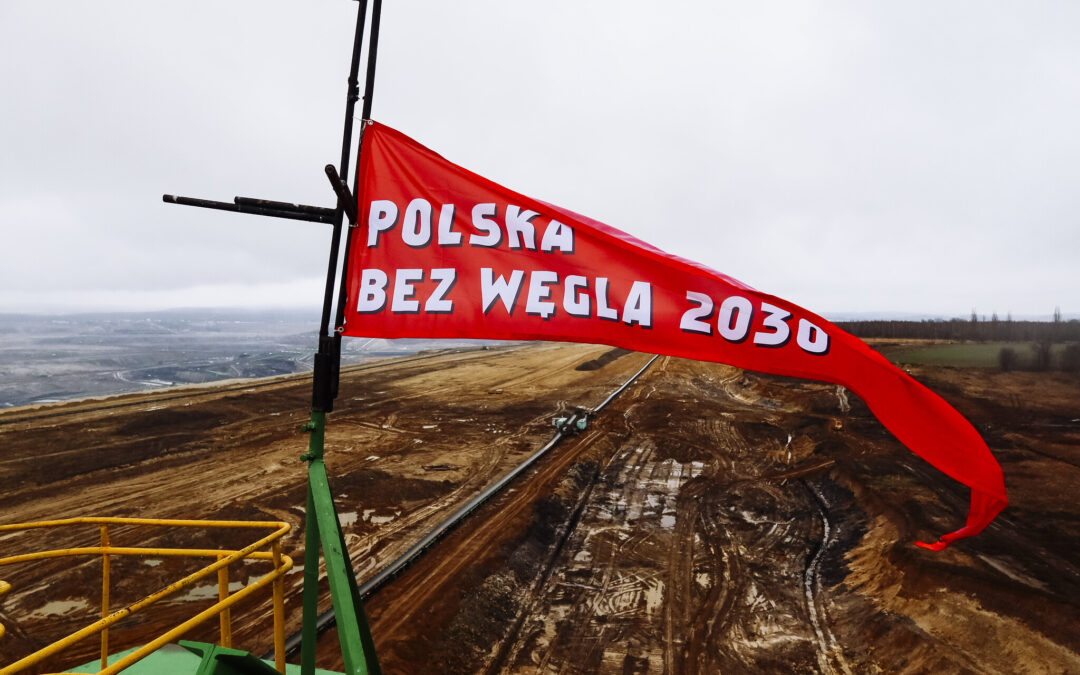As the European Union debates more ambitious climate goals as part of its “Fit for 55” plan, economists in Poland estimate that the green transformation would cost the bloc’s most coal-reliant country €527.5 billion by 2030, of which around €300 billion would need to be covered by Poland itself.
The main author of the report, however, believe that the required level of investment is feasible and could be offset by future savings in energy bills and public health gains.
"To meet the #FitFor55 by 2030, #Poland will have to cover a financial gap of around EUR 300 billion, despite #EU support." 😵😵😵https://t.co/ejNsm8HrYp#Polska
— MarcinGarn 🇵🇱 (@MarcinGarn) January 11, 2022
The EU package, currently under discussion in Brussels, aims to reduce greenhouse gas emissions by 55% relative to 1990 levels by 2030. This would be achieved by, amongst other measures, shrinking CO2 allowances in the Emissions Trading Scheme (ETS).
Analysts at Pekao, a state-owned bank, believe that this will cost Poland €190 billion more than meeting the previous goal of 40% (dubbed “Fit for 40”), according to the Dziennik Gazeta Prawna daily.
A copy of the bank’s report seen by the newspaper – and reportedly also discussed by the government – estimates that the ambitious new plans will cost Poland €527.5 billion by 2030, compared to the cost of €338 billion for meeting the Fit for 40 targets.
The breakdown of costs would include investments in the energy sector (€186 billion), household energy efficiency schemes (almost €100 billion), and paying for CO2 emissions (€33 billion).
Poland will need to reduce its total ETS allowances by 4.2% annually, rather than 2.2% as previously planned. Adding new sectors to the ETS, such as buildings and transport, may carry additional costs of around €19 billion.
The report assumes that the price of a tonne of CO2 would reach €129 by 2030, from its current level of around €80.
The new EU vision will also, however, come with more funding for Poland. The country is expected to receive €219.5 billion in various EU funds, compared with €103.6 billion assumed in the previous scenario.
This will come from greater ETS earnings as well as the EU’s 2021-2027 budget, which includes sizeable reconstruction funds. By 2030, there may also be more money coming in from the next budget.
Ernest Pytlarczyk, Pekao SA’s chief economist, who authored the report, believes that Poland can shoulder the costs. He notes that last year investment, at around 415 billion zloty, was equivalent to 17% of GDP, whereas in previous years it has exceeded 20%.
“Fit for 55 would require a return to this scale of expenditure,” he wrote. The economist also told Dziennik Gazeta Prawna that more savings could materialise through reduced energy bills and improved public health. Poland currently has some of the EU’s most polluted air, which causes tens of thousands of premature deaths each year.
Dziennik Gazeta Prawna reports that the calculations were discussed by the government in December, and have sparked heated debate. “The numbers are terrifying. The report…confirms our worst fears,” said Jacek Sasin, a deputy prime minister who also oversees the ministry for state assets, quoted by the newspaper.
One of the junior partners in Poland’s ruling coalition, the hard-right United Poland (Solidarna Polska) party, has been particularly critical of what it sees as the growing costs of Poland’s EU membership, including compliance with green policies.
Jarosław Kaczyński, chairman of the national-conservative Law and Justice (PiS), the main ruling party, has also recently called EU green policies “madness” based on “unproven theories”. The PiS prime minister, Mateusz Morawiecki, yesterday again blamed Brussels for ballooning energy costs.
The government has unveiled further measures to soften the blow of rising inflation, including cutting VAT on food and gas to zero.
The PM blamed "Russian gas manipulation" and "irresponsible, dogmatic EU climate policy" for rising prices in Poland https://t.co/wtkniAfkNb
— Notes from Poland 🇵🇱 (@notesfrompoland) January 12, 2022
Main image credit: Max Zieliński/Greenpeace Polska (CC BY-ND 2.0)

Maria Wilczek is deputy editor of Notes from Poland. She is a regular writer for The Times, The Economist and Al Jazeera English, and has also featured in Foreign Policy, Politico Europe, The Spectator and Gazeta Wyborcza.




















